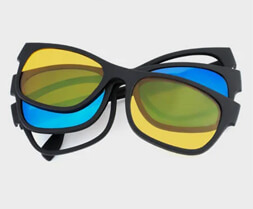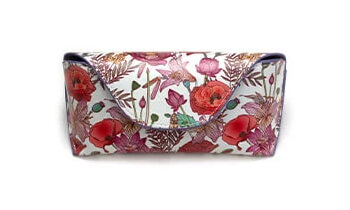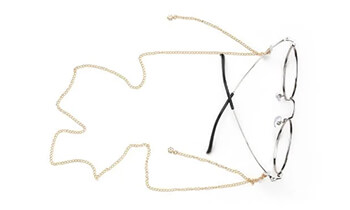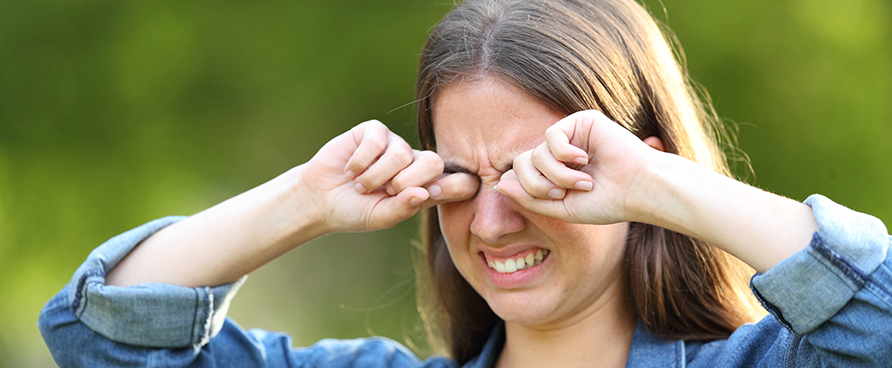Non-stop sneezing, pollen, dust, mites, and dust, the springtime, when everything is reviving, is very unfriendly to allergy-prone people. Especially for people who are allergic to pollen, spring is simply a disaster. In addition to the red and peeling nose with tissues, the unlucky ones are also our eyes - allergic conjunctivitis.
Itchy, unbearably itchy eyes, the more you rub them, the itchier they become (rubbing is not recommended). As the most typical feature of allergic conjunctivitis, it really is an itch that life cannot bear.
In addition to this, allergic conjunctivitis may present with the following symptoms:
- Redness and foreign body sensation in the eyes.
- A small amount of strained discharge.
- In severe cases, the eyelids may also be red and swollen, looking like the eyelids are swollen.
So what can we do to prevent allergic conjunctivitis when it is so uncomfortable? The first thing we need to understand is what allergic conjunctivitis is. How does it occur?
What is allergic conjunctivitis?
The conjunctiva is a clear, smooth membrane that covers our upper and lower eyelids and the whites of our eyes. Because it is in direct contact with the outside world and exposed to the air, it is easily exposed to outside substances such as pollen, dust, dust mites, etc.
If the body is allergic to these substances, then it will cause an allergic reaction to the conjunctiva, thus leading to allergic conjunctivitis. This, coupled with the fact that flowers and trees begin to pollinate in the spring and the increased frequency of people going outside, greatly increases the incidence of allergic conjunctivitis.
How to relieve the distress?
Allergies are a big headache. If you are a seasonal allergy sufferer, don't suffer in silence; try this to relieve your pain.
1. Staying away from allergens
To prevent allergic conjunctivitis, you need to identify the allergens and stay away from them.
- In your home life, keep the environment dry and clean, and if you have an air conditioner or air purifier, you need to change the filter regularly.
- Stay in your room as much as possible during allergy season and when allergy symptoms occur, and wear a dust mask when you have to be outdoors.
- Families with pets try not to let pets into the bedroom, and it is best to avoid not having close contact with pets.
- The arrangement of the home should reduce the number of clutter, carpets, sofas, upholstery, cloth curtains, and stuffed toys to prevent mites from breeding in large numbers.
2. Flushing the eyes
You can use sterile saline to flush your eyes or preservative-free artificial tear drops to flush the conjunctival sac and dilute the allergen.
3. Reduce makeup
Allergic conjunctivitis is often combined with dry eye and blepharitis, which can also aggravate allergy symptoms and therefore need to be treated simultaneously. People with the disease should pay extra attention to avoid wearing heavy makeup and contact lenses during the disease to avoid aggravating the condition.
Avoiding allergic conjunctivitis is more important than treatment, and avoiding allergens is paramount! Experience eye discomfort during allergy-prone seasons. It would help if you took the initiative to go to a regular eye clinic for a detailed examination to determine the cause and treatment plan.



































